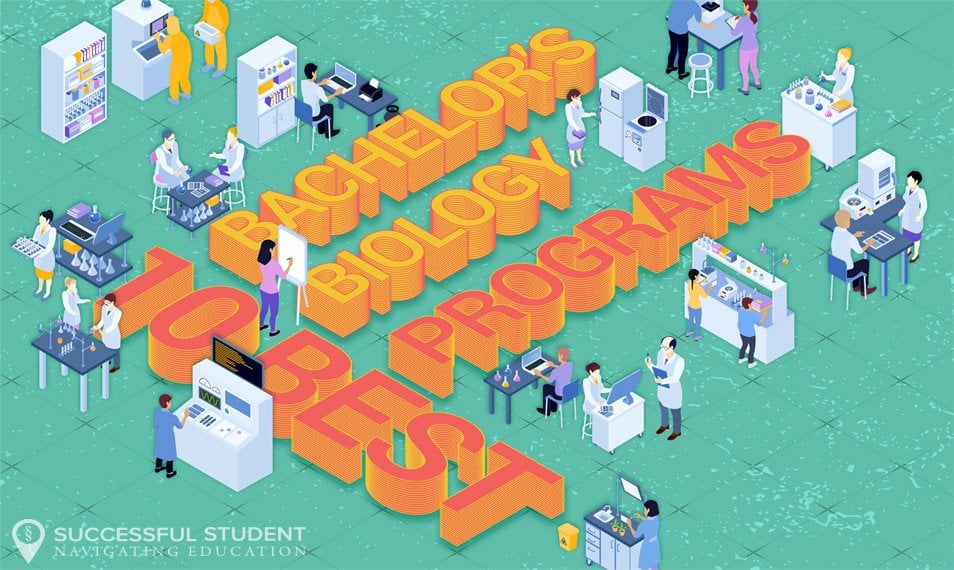| Rank | School | Location |
|---|---|---|
| 1 | Harvard University | Cambridge, Massachusetts |
| 2 | University of California, Berkeley | Berkeley, CA |
| 3 | Stanford University | Stanford, CA |
| 4 | Massachusetts Institute of Technology | Cambridge, MA |
| 5 | Yale University | New Haven, Connecticut |
| 6 | Cornell University | Ithaca, NY |
| 7 | Columbia University In The City Of New York | New York, NY |
| 8 | University of Chicago | Chicago, IL |
| 9 | University of Michigan, Ann Arbor | Ann Arbor, MI |
| 10 | University of Wisconsin-Madison | Madison, WI |
This is a ranking of the 10 Best Biology Bachelor's Degree Programs in the U.S.
This ranking is designed to guide undergrad students in being informed about the best Biology bachelor's programs.
An undergraduate degree in biology ensures flexibility in courses of study and future career paths. Graduates can often pursue different graduate programs, or may enter the workforce immediately, in positions such as teachers, or government.
Biology majors study organisms, adaptation to the pressures of natural selection, and many other facets of life.
Courses may include ecology, microbiology, genetics, and practical applications of biology. Practical applications include biological and pharmaceutical development and the practice of medicine.
Students pursue research that can train for many different career paths.
Many of these schools offer Bachelor of Science in Biology, or similar degrees. All students will gain a knowledge in the core components of biology and will engage in laboratory research.
A liberal arts approach to analytical reasoning benefits student's understanding of biological principles. Most of these degrees offer customizable options, tailored to double majors or individual interests.
A Bachelor's in Biology leaves many options open for careers and/or graduate schools.
Featured College and Biology Programs:
Schools may download and use our badge.
The 10 Best Biology Bachelor's Degree Programs
Harvard University
Cambridge, Massachusetts
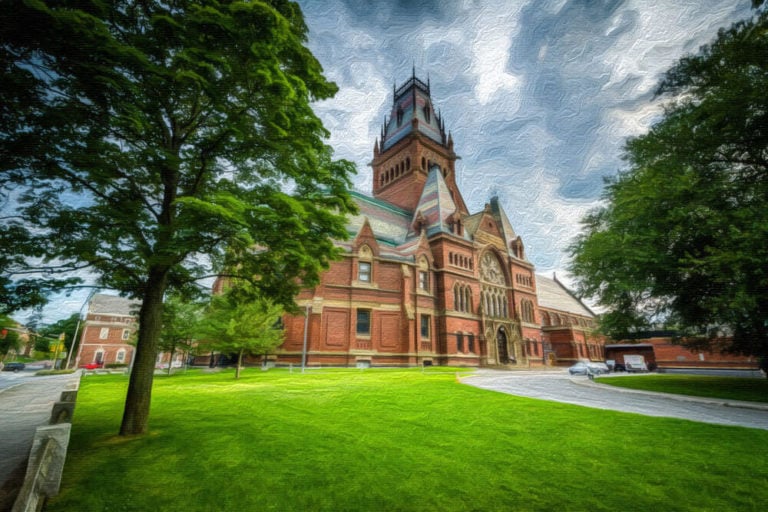
At Harvard University, future biologists can earn a Bachelor of Science in Molecular and Cellular Biology (MCB) or a Bachelor of Chemical and Physical Biology (CPB).
The Molecular and Cellular Biology (MCB) program takes an intersectional approach. It studies how modern cellular biology research interacts with medicine's impact on society. The program investigates biological processes through their molecules' interactions in cells and tissues.
Students learn subjects such as infectious diseases, genomics, immunology, systems biology, cancer biology, global health, and the microbiome. MCB students can join a laboratory of one of the many MCB faculty members, culminating in a senior thesis.
Students graduating from the Chemical and Physical Biology (CPB) program will combine methods. They'll supplement traditional biological techniques with cutting edge approaches and methods. These methods come from many fields, like engineering, biomedicine, and mathematics.
The MCB degree track is most suited for students who want to study molecular and cellular processes. These studies comprise the heart of both normal physiology and disease physiology. Graduates pursue a broad range of careers. You can find graduates in biological and medical research, public and global health, science policy, law and intellectual property, business, education, and science writing.
Credit requirements: 52 credits
Selection of courses:
- Molecular Biology of the Bacterial Cell
- Organic Chemistry
- Genetics in Medicine: From Bench to Bedside
- The Cell Biology of Human Life in the World
- Cellular Biology and Molecular Medicine
Influential Alumni from Harvard:
- Carolyn Bertozzi: Chemist, B.A. in Chemistry
- Richard Lewontin: Evolutionary Biologist, B.S. in Biology
- Jennifer Doudna: Biochemist, Ph.D. in Biological Chemistry and Molecular Pharmacology from Harvard Medical School.
- Edward O. Wilson: Biologist,Ph.D.
Influential Faculty at Harvard:
- Richard Lewontin: Evolutionary biologist, Professor of Biology Emeritus, and Professor of Zoology Emeritus
- James D. Watson: Zoologist, Geneticist & Molecular Biologist
- Edward O. Wilson: Biologist, Pellegrino University Research Professor Emeritus of Entomology at the Department of Organismic and Evolutionary Biology at Harvard University
University of California, Berkeley
Berkeley, CA
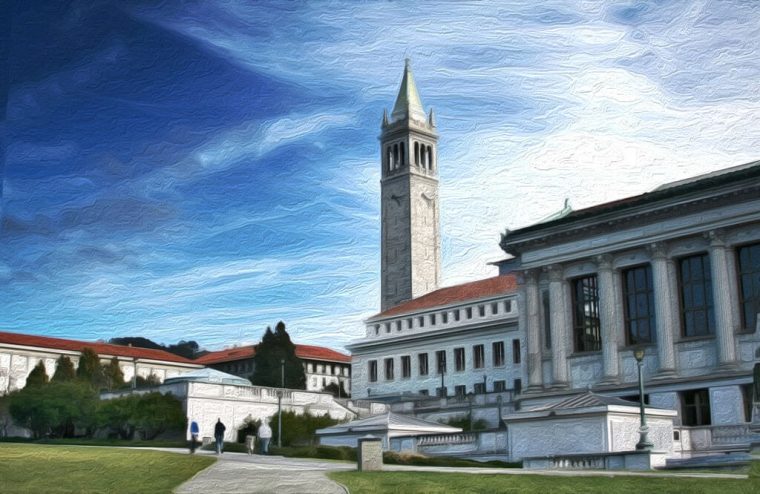
Biology students at University of California, Berkeley split their time between several sub-fields of biology. This enhances their specific research interests. Students will be better qualified for exciting research and careers after graduation. Students may earn these degrees:
- Bachelor of Arts in Integrative Biology
- Bachelor of Science in Molecular and Cell Biology
- Bachelor of Science in Genetics and Plant Biology
- Bachelor of Science in Microbial Biology
The Degree in Integrative Biology focuses on the integration of structure and function that influences the biology, ecology, and evolution of organisms. The scope of this integration ranges from molecules to all branches of life in the biosphere. The program harnesses its faculty's advanced research. Their expertise includes:
- Functional morphology
- Organismal physiology
- Animal behavior
- Biomechanics
- Paleobiology
- Population genetics
Beyond the faculty's interests, the research activities in the department concern function, reproduction and development of living organisms. This includes a broad range of disciplines in the coursework.
Courses include:
- Biochemistry
- Biophysics
- Structural biology
- Bioinformatics
- Developmental biology
- Tumor biology
- Immunology
The Plant Biology program applies research to plants and designs plant biotechnologies. With emerging needs as the climate changes, the plant biology program has re-focused its research. Students will still study the biology of plants and their development. They will also learn about their effect and response to the environment and people.
The Degree in Microbial Biology hinges on the awareness that understanding microbial activities is essential to all life's well being. Students will learn about microbes to better comprehend the global ecosystem in all its diversity and history.
All the programs have access to a wealth of resources. Students can explore many research centers, museums, laboratories, greenhouses, and reserves. Students can learn from the Museum of Vertebrate Zoology, a research unit affiliated with the department. Students can even visit The Center for Stable Isotope Biogeochemistry, an analytical campus facility.
Credit requirements: 65 credits
Selection of courses:
- Microbes Make the World Go Round
- Stem Cell Biology, Ethics, and Social Impact
- Bio-inspired Design
- Integrative Human Biology
- Genetics and Society
Influential Alumni from the University of California, Berkeley:
- Carolyn Bertozzi: Chemist, Ph.D.
Influential Faculty at the University of California, Berkeley:
- Jennifer Doudna: Biochemist. Li Ka Shing Chancellor Chair Professor for the Department of Chemistry and Department of Molecular and Cell Biology
- Randy Schekman: Cell Biologist
Stanford University
Stanford, CA
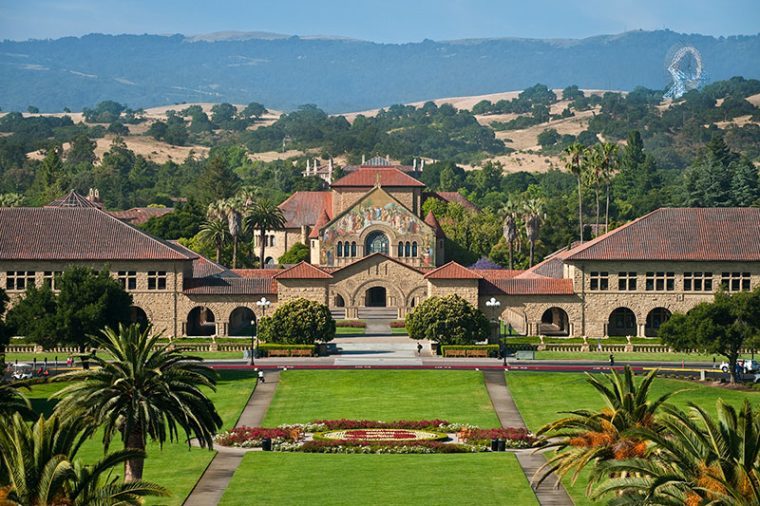
Stanford University offers a Bachelor of Science in Biology. The Bachelor of Science is for students who want to study biology or pursue medical school. The program also helps those looking to attend a science graduate program or go into research. The program gives a liberal arts education a unique perspective for those not pursuing biology post-grad.
The program is research-centric. Opportunities for research occur in the classroom, in student labs, and across the world. Approximately 90 percent of biology majors pursue independent research at some point. Students can study at the Hopkins Marine Station, only 90 miles from campus. Students can take their learning to Hawaii, Paris, Australia, Santiago and Oxford.
Research topics give the department its shape. Faculty specialize in many far-reaching subjects including:
- Neurobiology
- Plant biology
- Genetics
- Ecology
- Conservation biology
All students also have the opportunity to complete The Senior Reflection. The three semester capstone course combines science with art. They'll create exciting projects that join an in-depth understanding of the life sciences. This culminates in a presentation in May.
Credit requirements: 40 credits minimum
Selection of courses:
- Computational Biology
- Molecular Cell and Developmental Biology
- Introduction to Research in Ecology and Evolutionary Biology
- Cell Biology
- Evolutionary Biology
Influential Alumni from Stanford University:
- Marcus Feldman: Evolutionary Biologist, Ph.D.
- Randy Schekman: Cell Biologist, Ph.D.
Influential Faculty at Stanford University:
- Carolyn Bertozzi is the Anne T. and Robert M. Bass Professor in the School of Humanities and Sciences
- Marcus Feldman: Evolutionary Biologist, director of the Morrison Institute for Population and Resource Studies, the Burnet C. and Mildred Finley Wohlford Professor of Biological Sciences, and co-director at the Center for Computational, Evolutionary, and Human Genomics
Massachusetts Institute of Technology
Cambridge, MA
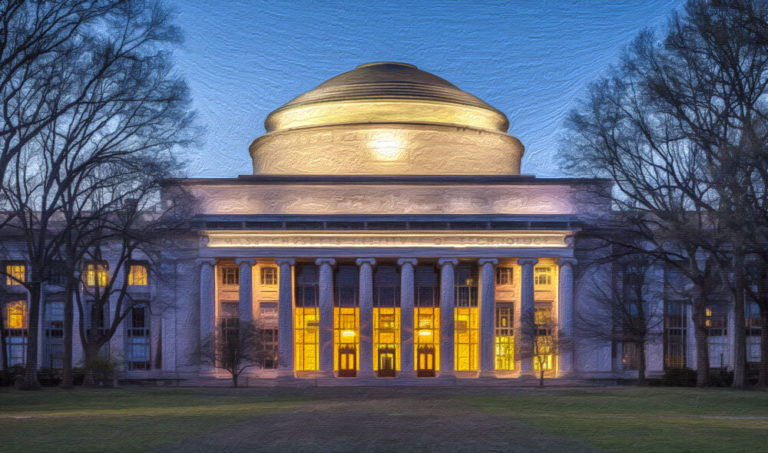
Students at the Massachusetts Institute of Technology earn a Bachelor of Science in Biology. The intensive program spans several courses.
Majors at MIT are considered "courses" and the study of biology spans courses 7 (Biology), 5-7 (Chemistry and Biology), and 6-7 (Computer Science and Molecular Biology).
These courses provide expertise in biological sciences, biochemistry, chemical biology, computational biology, and computer science. All students complete general institute requirements, including science, humanities, communication, physical education, and laboratory credits.
The department offers 10 areas of research led by award-winning faculty. Areas include microbiology, biochemistry, structural biology, human genetics and disease, cell biology, infectious disease, immunology, cancer biology, and stem cell and developmental biology.
In addition to coursework, nearly 90% of MIT undergraduates participate in the Undergraduate Research Opportunities Program by the time they graduate, providing hands-on learning from international experts in their field.
Graduates from this program emerge in many fields. In addition to pursuing advanced degrees, such as PhDs or MDs, students also directly enter the biotechnology and pharmaceutical industries and pursue fields such as communication, patent law, and consulting.
Yale University
New Haven, Connecticut
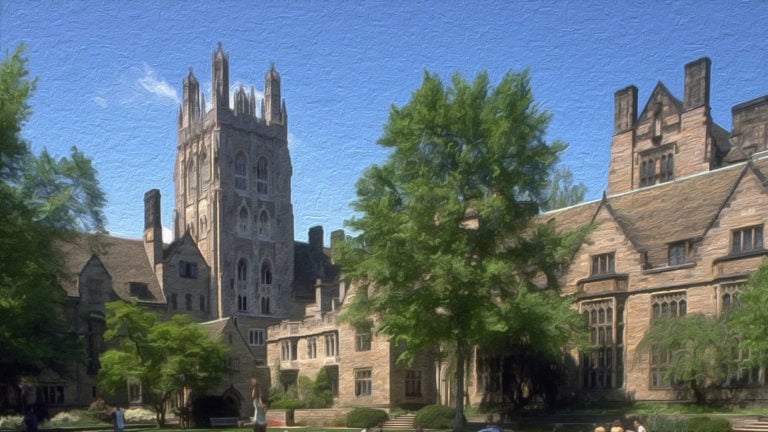
Students earning either a Bachelor of Arts or a Bachelor of Science in Molecular, Cellular, and Developmental Biology (MCDB) at Yale University gain a rigorous liberal arts education alongside specific professional training. The program prepares them to work in a variety of prestigious fields.
The Molecular, Cellular, and Developmental Biology program offers a standard track and three interdisciplinary programs of study. Students focus in biotechnology, neurobiology and quantitative biology.
Students earn the B.A. degree with two final evaluation options. Students can submit an essay of 15-20 pages evaluating current research in a field of biology. Students can also complete one credit of individual research. The B.S. degree has a greater emphasis on individual research. Two contiguous terms of individual research is required for the standard B.S.
All students must take the biology foundations course sequence, even if they scored highly on AP or IB tests. From there, students' coursework becomes more varied and specific to their track. Students have many opportunities to carry out research in the laboratory of a faculty member.
Top notch research activity takes place all over the department and between departments. A frequent collaborator is the Yale School of Medicine. Research topic areas span molecular biology, biochemistry, genetics, cell biology, neurobiology, physiology, computational plant sciences biology, and evolution.
Credit requirements: 36 credits minimum
Selection of courses:
- Developmental Biology
- Cell Biology
- Molecular Biology
- Physics
- Principles of Biochemistry
Cornell University
Ithaca, NY
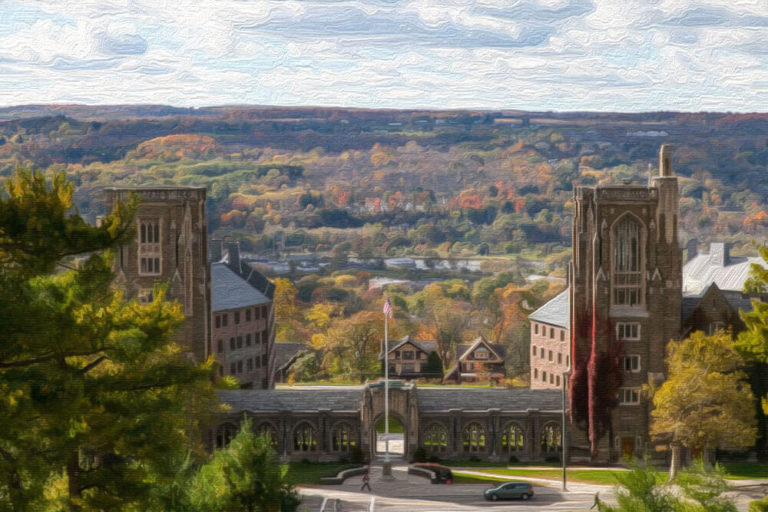
Cornell University offers a Bachelor of Science in Biological Sciences through the College of Agriculture and Life Sciences, and a Bachelor of Arts in Biological Sciences through the College of Arts and Sciences.
The requirements for the biological sciences major are the same. Though these two different colleges require that students take different courses to finish the degrees.
Interested students should choose their college of matriculation based on their secondary interests, but their coursework, concentrations, and research opportunities may span both colleges, as well as others, such as the Colleges of Engineering, Human Ecology, and Veterinary Medicine.
Students in either college choose from 14 concentrations. These concentrations span from general biology to biochemistry, biodiversity and systematics, human nutrition, plant biology and computational biology. With over 300 life science faculty between the two schools, students can engage in a vast array of research projects from protein structure to marine ecosystems.
Investigating the research opportunities and different student involvement in co-curricular activities will differentiate the programs and individual student experiences. Students interested in plants, marine biology, insects and nutrition may want to consider the College of Agriculture and Life Sciences, whereas those interested in the humanities and social sciences may want to consider the College of Arts and Sciences.
Credit requirements: 56 credits minimum
Selection of courses:
- Human Microbes and Health
- Marine Ecosystem Sustainability
- Hormones and Behavior
- Stem Cell Biology
Columbia University In The City Of New York
New York, NY
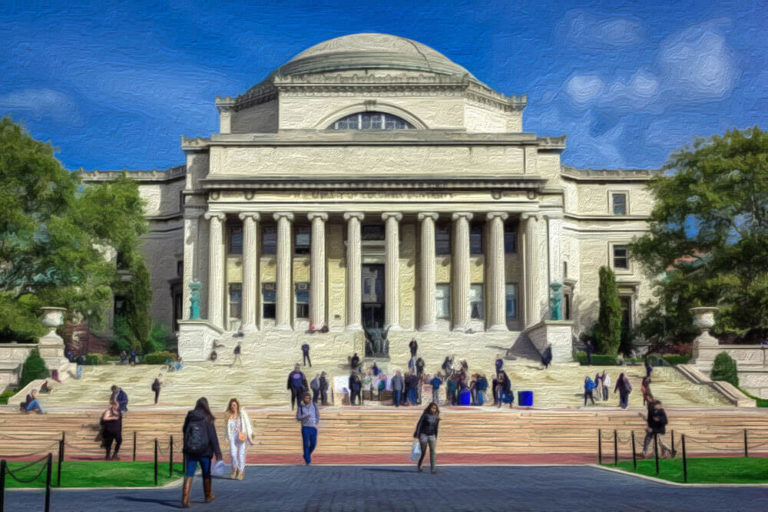
Students can earn a Bachelor of Arts in Biology through several colleges at Columbia. Students enrolled at Columbia College, the School for General Studies or Barnard College pursue similar requirements.
Course requirements for the biology major include:
1. Biology:
- 1 year of introductory biology
- 2 core courses in biochemistry or biology
- 2 three-point electives in biochemistry or biology
- Labs
2. Chemistry
3. Physics
4. Mathematics
Students take chemistry, physics and mathematics courses for at least a year. Most of these classes also include a lab component. Students also must take courses outside the Department of Biological Sciences.
The Department used to be a zoology and botany department, but now focuses on neurobiology and molecular biology. Other topics of research studied there include developmental, cell, structural, chemical and computational biology.
Students can also work as a volunteer in labs let by professors. Many of these positions are unpaid, but they offer resume buffing and learning. Students can also get academic credit for working in a lab.
Credit requirements: 36 credits minimum
Selection of courses:
- Intensive General Chemistry
- Organic Chemistry
- Project Laboratory in Microbiology
- Project Laboratory in Protein Biochemistry
- Antimicrobial Resistance
Influential Alumni from Columbia University in the City of New York:
- Richard Lewontin: Evolutionary Biologist, master's degree in Mathematical Statistics, Ph.D. in Zoology
University of Chicago
Chicago, IL
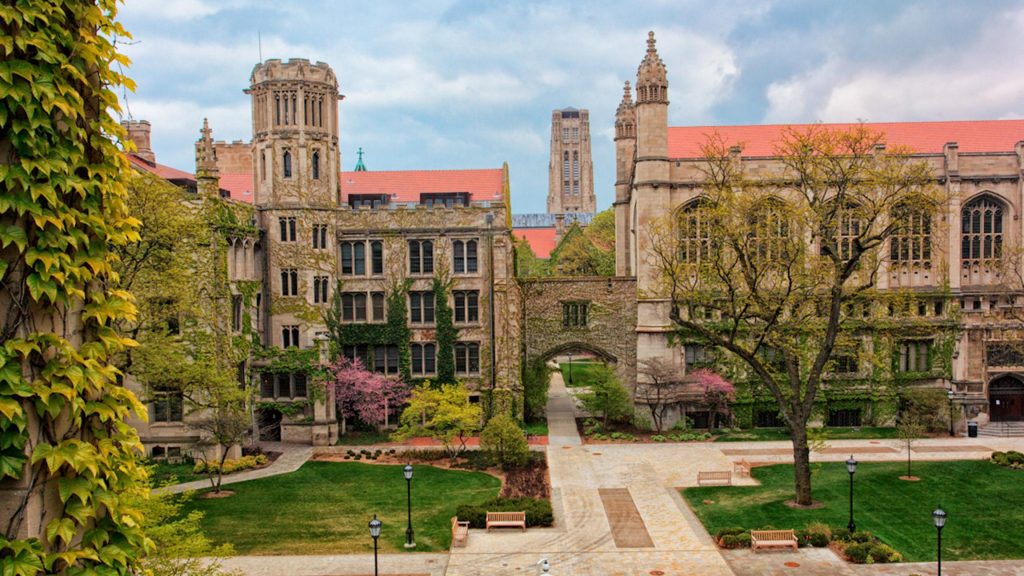
The University of Chicago offers both a Bachelor of Arts and a Bachelor of Science in Biological Sciences. Both programs aims to give students knowledge of current concepts in biology.
The programs also impart an appreciation for the gaps in those concepts. The program boasts many research opportunities to encourage students to fill those gaps.
After learning about all levels of biological organization, students tailor their courses to their interests.
Specializations in the degree program:
- Quantitative Biology
- Cell and Molecular Biology
- Cancer Biology
- Endocrinology
- Global Health Sciences
- Ecology and Evolution
- Genetics
- Microbiology
- Immunology
The two programs offer mainly similar courses. Students in the BA program want training in modern biology and the opportunity to take non-major elective courses. BS students want to take more courses within the major and to write a senior thesis.
The department offers many opportunities to engage students outside the classroom. Around 80 to 90 percent of all biology students engage in research opportunities. Students apply for funding, travel abroad and join campus research initiatives.
Credit requirements: 2500 credit points
Selection of courses:
- Ecology of Conservation
- Biological Dynamics
- Mathematical Methods for Biological Sciences
- Cancer Biology
- Principles of Toxicology
Influential Alumni from the University of Chicago:
- James D. Watson: Zoologist, Geneticist & Molecular Biologist. Bachelor of Science
University of Michigan, Ann Arbor
Ann Arbor, MI
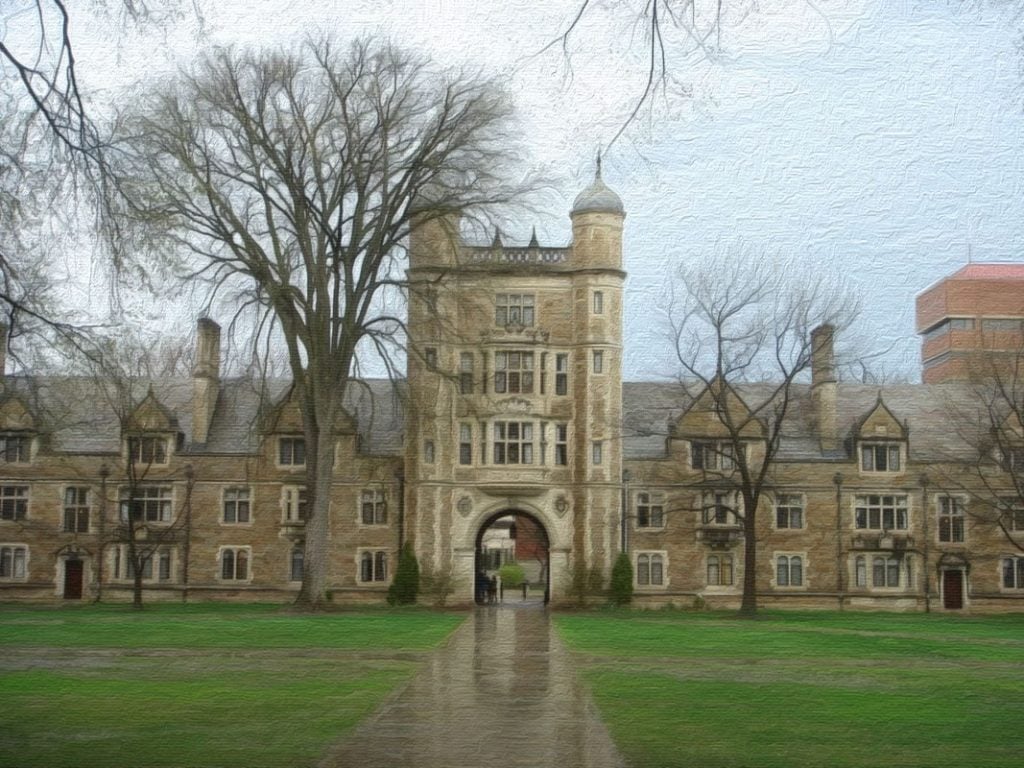
The University of Michigan Ann Arbor program in biology offers eight different Bachelors of Science in Biology.
These majors are offered in three departments: Biology, Health and Society; Molecular, Cellular, and Developmental Biology.
The majors offered are:
- Biology; Biology, Health and Society
- Molecular, Cellular, and Developmental Biology
- Cellular and Molecular Biology
- Ecology, Evolution and Biodiversity
- Microbiology
- Plant Biology
- Neuroscience
Each program serves different research interests and different professional goals. The biology program serves those aiming to teach or pursue graduate degrees. Other programs serve medical school goals or double-majoring. Some emphasize laboratory work and others emphasize an analytical approach.
The department offers several student groups for engagement outside the classroom. Students can create projects with friends studying anything they can think up. While students can work in faculty or department labs, they can also head their own research. They'll work closely with an advisor and can aim toward publication.
Students in the department often head toward medical, dental, veterinary, or graduate school. Others enter into governmental or teaching positions.
Credit requirements: 30 credits
Selection of courses:
- Animal Physiology Laboratory
- Rivers, Lakes and Wetlands
- Parasitology
- Endocrinology Laboratory
- Hormones and Behavior
University of Wisconsin-Madison
Madison, WI
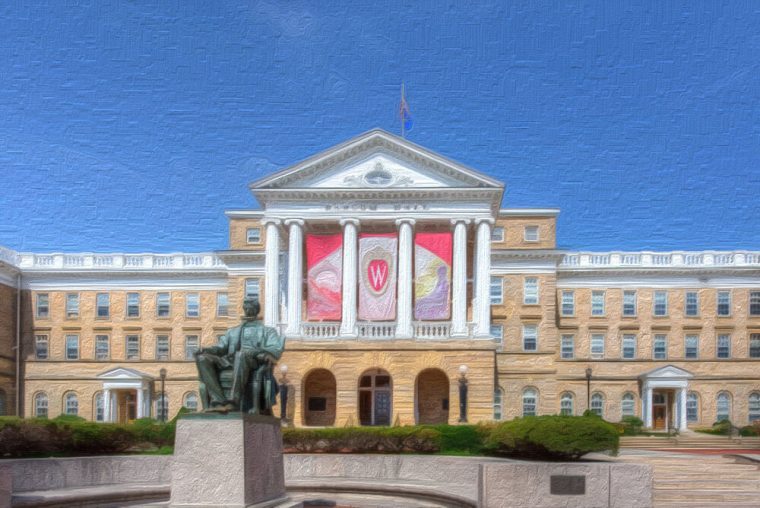
The University of Wisconsin-Madison offers the Biology Major in both a Bachelor of Arts and a Bachelor of Science degree. Students can complete the major in the College of Agricultural & Life Sciences or the College of Letters & Science.
The Biology major fits students interested in exposure to biological concepts and methodologies. The program also fits those interested in a more specific sub-discipline. There are two named options in the program: plant biology and evolutionary biology.
These programs prepare students for intensive study. Many students go on to professional or graduate careers in these subjects.
The program at large is fit for students wanting to pursue graduate degrees in biology fields and health fields. The major gives students an understanding of the biological sciences alongside needed pre-professional training.
The programs each require core courses, lab requirements and electives. The differences originate in the general requirements per college. In both schools, students can study abroad, engage in research opportunities, and complete internships both during the academic year and over the summer semester.
Credit requirements: 120 credits for the degree
Selection of courses:
- Hominoid Evolution
- Reproductive Physiology
- Plant Cell Culture and Genetic Engineering
- Midwestern Ecological Issues: A Case Study Approach
Ranking Methodology:
This ranking was created by determining which Biology programs have had the most academic influence in Biology. We then focused on bachelor's programs in particular at these universities, and looked at the quality of the programs, variety of instructions and access to labs and facilities, and academic reputation and prestige.
We rank schools and programs for the benefit of students, to help students become successful by helping them navigate education. For more ranking information about how we measure academic influence, please see our Ranking System.
College Table
| Ranking | University | Tuition | Acceptance Rate | Graduation Rate |
|---|---|---|---|---|
| 1. | Harvard University | $50,000 | 06% | 97% |
| 2. | University of California, Berkeley | $14,000 | 15% | 92% |
| 3. | Stanford University | $51,000 | 04% | 94% |
| 4. | Massachusetts Institute of Technology | $52,000 | 07% | 93% |
| 5. | Yale University | $53,000 | 06% | 98% |
| 6. | Cornell University | $55,000 | 11% | 94% |
| 7. | Columbia University | $53,000 | 06% | 95% |
| 8. | University of Chicago | $57,000 | 05% | 94% |
| 9. | University of Michigan | $16,000 | 20% | 91% |
| 10. | University of Wisconsin Madison | $11,000 | 60% | 85% |
More resources:
